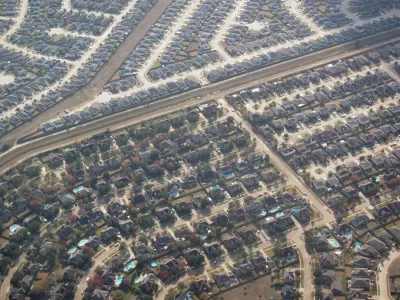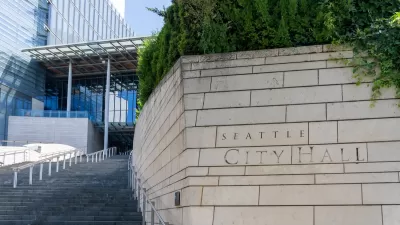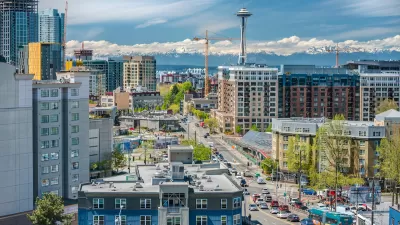The subdivision process imposes rules that result in a lack flexibility, convoluted urban design, and diced up landscapes.

Ray Dubicki argues subdivision and the parceling of land should get as much attention as zoning when examining how cities are shaped. "Once a lot is created through subdivision, it never gets unmade. Subdivision leaves a paper trail burdened with the weight of the past and creating a significant barrier to change. That barrier gets higher and higher as we shred city land into the tiniest possible atoms."
Dubicki says the decisions related to subdivision can create less-than-ideal results that are permanent. "There is a reason that the building industry refers to the results of subdivision approvals as 'entitlements.' They are court enforceable rulings on the intensity of development and limits to what the city is asking for. Builders plug this into their accounting to figure out profit and loss. The jurisdiction’s hands are then tied."
Subdivision also hinders denser developments by creating smaller and smaller parcels that are then more difficult to consolidate for larger multi-family buildings. In addition, parcels such as "flag lots," requiring long, shared driveways for access to a public road, create "puzzle piece subdivisions," says Dubicki.
"Perhaps our challenge is to move our subdivision mindset away from the simple parceling out of land and entitlements. The flat, indelible lines of subdivision are just as inflexible as the old flat LEGO baseplates. We are developing newer ways of thinking about layers of space in our cities, including different methods of ownership and the ways they impact our communities," adds Dubicki.
Update: At the end of his article on subdivision, Dubicki asked readers to nominate the strangest lot lines in the Seattle areas. He has compiled the most bizarre lot winners, including the Olympic Hammerhead, Sammamish Crop Circles, and the Land Meander.
FULL STORY: The Lines We Draw: Subdivision

Alabama: Trump Terminates Settlements for Black Communities Harmed By Raw Sewage
Trump deemed the landmark civil rights agreement “illegal DEI and environmental justice policy.”

Study: Maui’s Plan to Convert Vacation Rentals to Long-Term Housing Could Cause Nearly $1 Billion Economic Loss
The plan would reduce visitor accommodation by 25% resulting in 1,900 jobs lost.

Planetizen Federal Action Tracker
A weekly monitor of how Trump’s orders and actions are impacting planners and planning in America.

Waymo Gets Permission to Map SF’s Market Street
If allowed to operate on the traffic-restricted street, Waymo’s autonomous taxis would have a leg up over ride-hailing competitors — and counter the city’s efforts to grow bike and pedestrian on the thoroughfare.

Parklet Symposium Highlights the Success of Shared Spaces
Parklets got a boost during the Covid-19 pandemic, when the concept was translated to outdoor dining programs that offered restaurants a lifeline during the shutdown.

Federal Homelessness Agency Places Entire Staff on Leave
The U.S. Interagency Council on Homelessness is the only federal agency dedicated to preventing and ending homelessness.
Urban Design for Planners 1: Software Tools
This six-course series explores essential urban design concepts using open source software and equips planners with the tools they need to participate fully in the urban design process.
Planning for Universal Design
Learn the tools for implementing Universal Design in planning regulations.
Caltrans
Smith Gee Studio
Institute for Housing and Urban Development Studies (IHS)
City of Grandview
Harvard GSD Executive Education
Toledo-Lucas County Plan Commissions
Salt Lake City
NYU Wagner Graduate School of Public Service





























